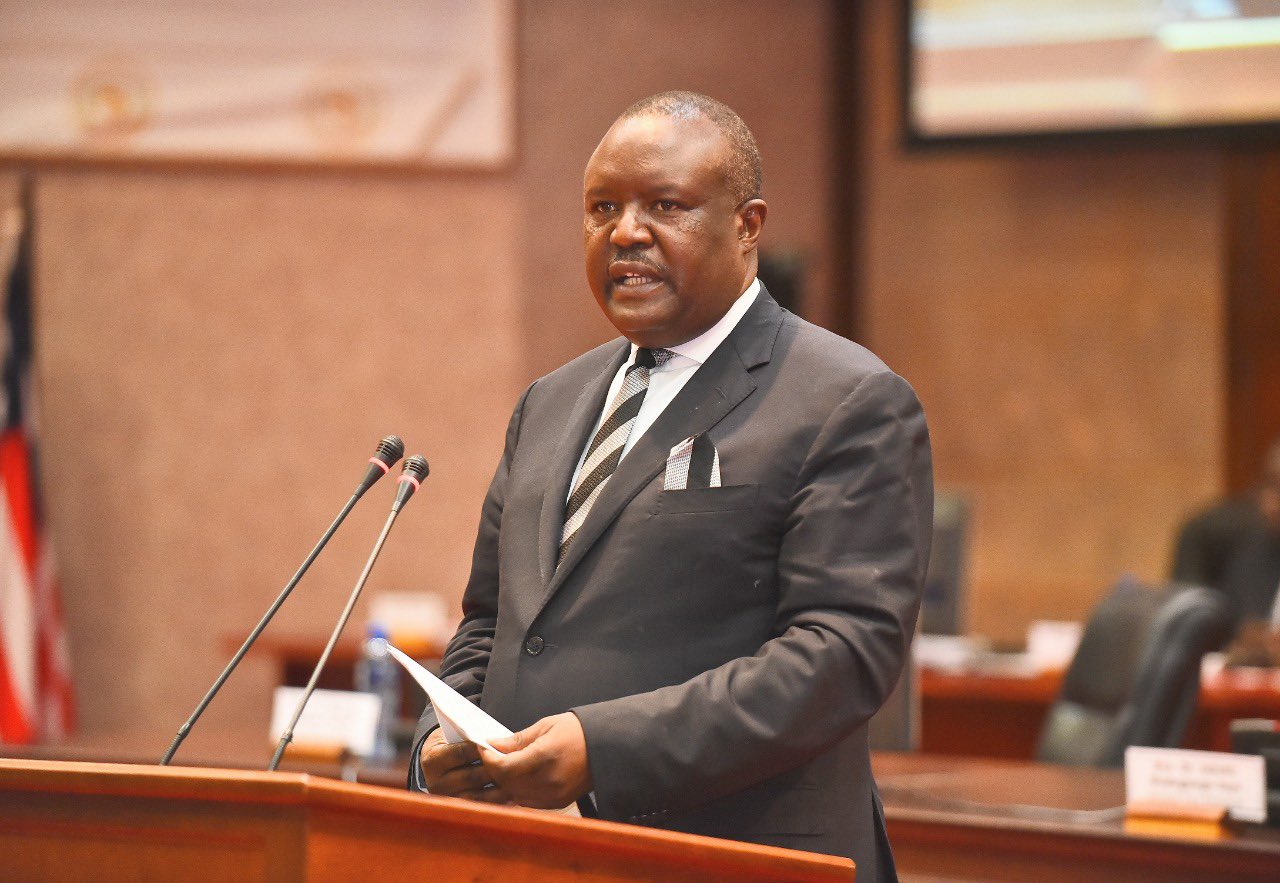|
Getting your Trinity Audio player ready…
|
The Pan African Parliament (PAP) is today holding a high-level dialogue to deliberate on the rising phenomenon of unconstitutional changes of government and irregular political transitions on the continent.
In his keynote address, Hon Chief Fortune Charumbira, the President of the PAP, said the dialogue is meant to reflect upon, deliberate, exchange ideas, and make propositions on the role of PAP in addressing the rise in incidents of unconstitutional changes of Government in some of PAP Member States.
“This high-level dialogue is the first of its kind by the PAP though dialogues of a such nature have been convened before by our Member States. You may recall that the Union and some of our Organs have in the course of this year held a series of deliberations on the rising phenomenon of unconstitutional changes of government and irregular political transitions. The outcomes of these engagements, include the declaration adopted by the 16th Extraordinary Session of the Assembly of the African Union on Terrorism and Unconstitutional Changes of Government in Africa, held on 28th May 2022 in Malabo, Equatorial Guinea,” Hon Charumbira said.
The Parliamentary Dialogue is not only an opportunity to reflect upon the outcomes of the Extra Ordinary Summit in Malabo, but it also offers a chance for the PAP to strategize based on its mandate on how it can help to prevent, mitigate and address the increasing incidence of unconstitutional changes of government.
Rule 4(1) (c) of the PAP Rules of Procedure enjoins the PAP to participate in creating awareness among the peoples of Africa on “the promotion of peace, security, and stability on the African continent”.
Chief Charumbira said PAP is thus the voice of African citizens within the Union in the quest for peace and political stability.
“Our dialogue today should, therefore, be practical, informed, and action-oriented on what and how we can support the AU Member States and our institutions to advance democratic governance broadly in reversing incidents of unconstitutional changes of government.”
He encouraged participants not to reduce the dialogue to just another rhetorical talk show but rather a strategic and action-oriented dialogue of Parliamentarians aimed at safeguarding and protecting constitutional democracy, human rights, the rule of law, and good governance in Africa as envisioned by Rule 4(1)(b) of the PAP Rules of Procedure as read with the Africa Agenda 2063.
“Need I remind you that this dialogue also resonates with the AU Theme for 2020 “Silencing the Guns: Creating Conducive Conditions for Africa’s Development”. Peace and security are critical due to the depth of their positive impact across many priorities of the African Union, including stability, economic growth, public service delivery, poverty reduction, fighting corruption, and confidence-building. In that context, we will hear from some of Africa’s leading experts on the subject. I, therefore, call upon each one of us to be candid in properly diagnosing the challenges that confront us and proffering practical and innovative solutions that give citizens primacy and agency in upholding democracy,” Chief Charumbira added.
The AU Member States have committed to making peace, democracy, and good governance a reality for citizens of the African Continent. This commitment is grounded in AU’s treaty and policy frameworks which seek to address governance, democracy, and peace and security challenges that the Continent faces. Based on the implementation of these frameworks, the Continent has made considerable steps in the promotion, protection, and consolidation of democracy, good governance, human rights, and constitutionalism. This is evidenced by the introduction of multi-party party politics, the execution of regular and competitive elections, the restoration of legislative and oversight functions of parliaments, and the guarantee of the independence of judiciaries.
To protect and preserve ongoing democratization in Africa and to entrench constitutional and peaceful political transitions means as the only acceptable way to change governments on the Continent, AU Member States have adopted treaties and frameworks that prohibit unconstitutional changes of government.
Foremost, the AU Constitutive Act under Article Article 4(p) outlines the prohibition of unconstitutional changes of government as one of the foundational principles of the AU. In addition, the commitment to stem unconstitutional changes of government is set out in the Lomé Declaration and the African Charter on Democracy, Elections, and Governance.
On the strength of these frameworks, in the last decade, the AU and Regional Economic Communities have made considerable efforts in addressing unconstitutional changes of government and enhancing peaceful political transitions in the Continent through the imposition of sanctions and other punitive measures for violations of the norms against unconstitutional changes of government
Granted and despite the adoption of norms against unconstitutional changes of government and AU and RECs efforts, there is a resurgence of the phenomenon.
In the past two years, the Continent has witnessed a sharp increase in military coups. Some AU Member States such as Guinea, Mali, Burkina Faso, and Sudan, are grappling with the challenge of restoring full constitutional order and civilian rule following military takeovers. Beyond military coups as a recent manifestation of unconstitutional changes of government, the trend of manipulating constitutions undermines democracy and good governance on the Continent.
The AU Assembly during its 16th extraordinary summit on 28 May 2022 in Malabo, Equatorial Guinea, noted with deep concern the resurgence of unconstitutional changes of government in Africa. This concern was also expressed during a Citizens’ Forum on Economic Social and Cultural Council (ECOSOCC), an organ of the African Union, from 11-13 July 2022 in Lusaka, Zambia.
The importance of this issue to democracy, governance, and peace and security in Africa is further demonstrated by the fact that the Peace and Security Council (PSC) in 2022 alone, has focused three sessions on unconstitutional changes of government, including an AU continental reflection forum from 15 to 17 March in Accra, Ghana.
